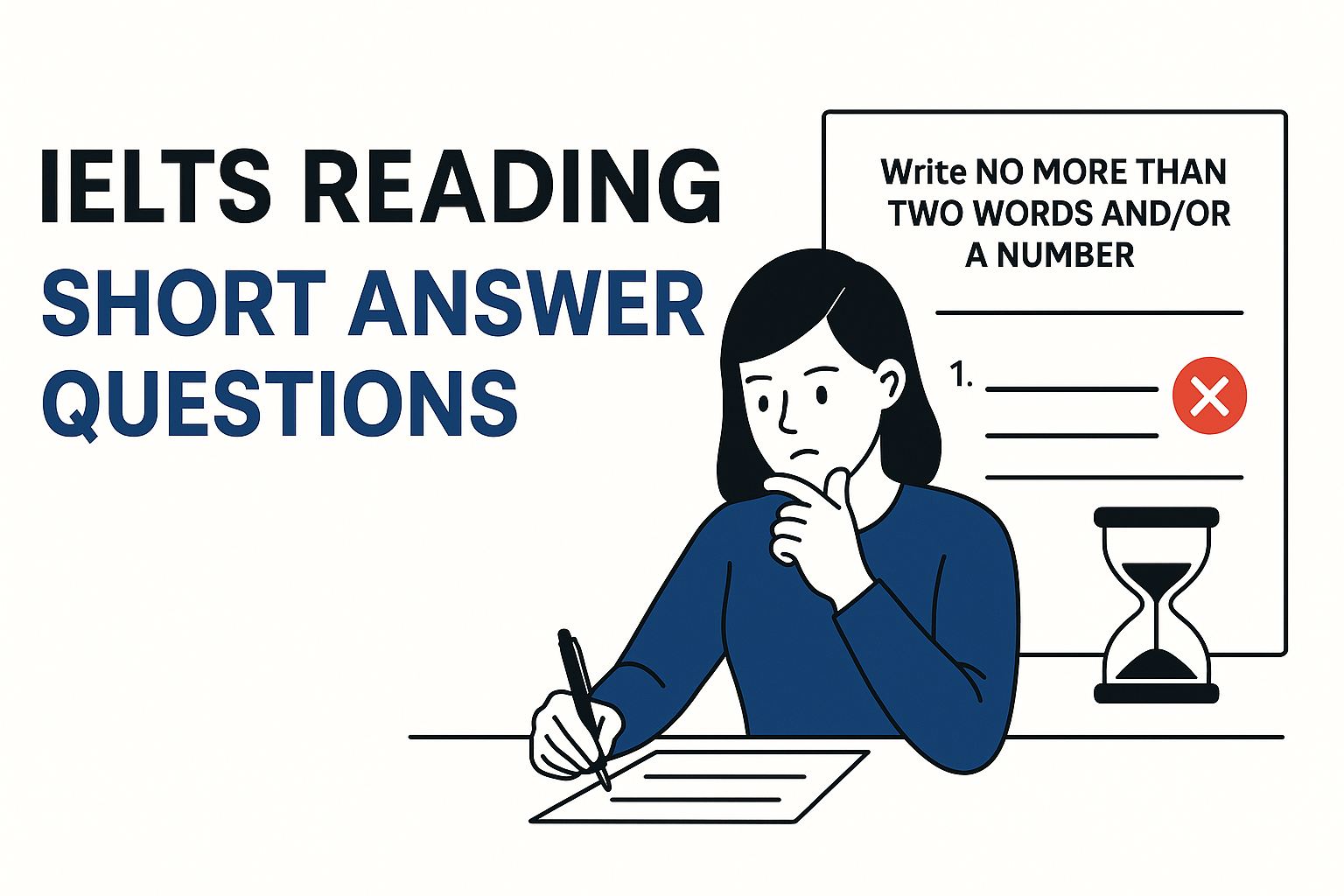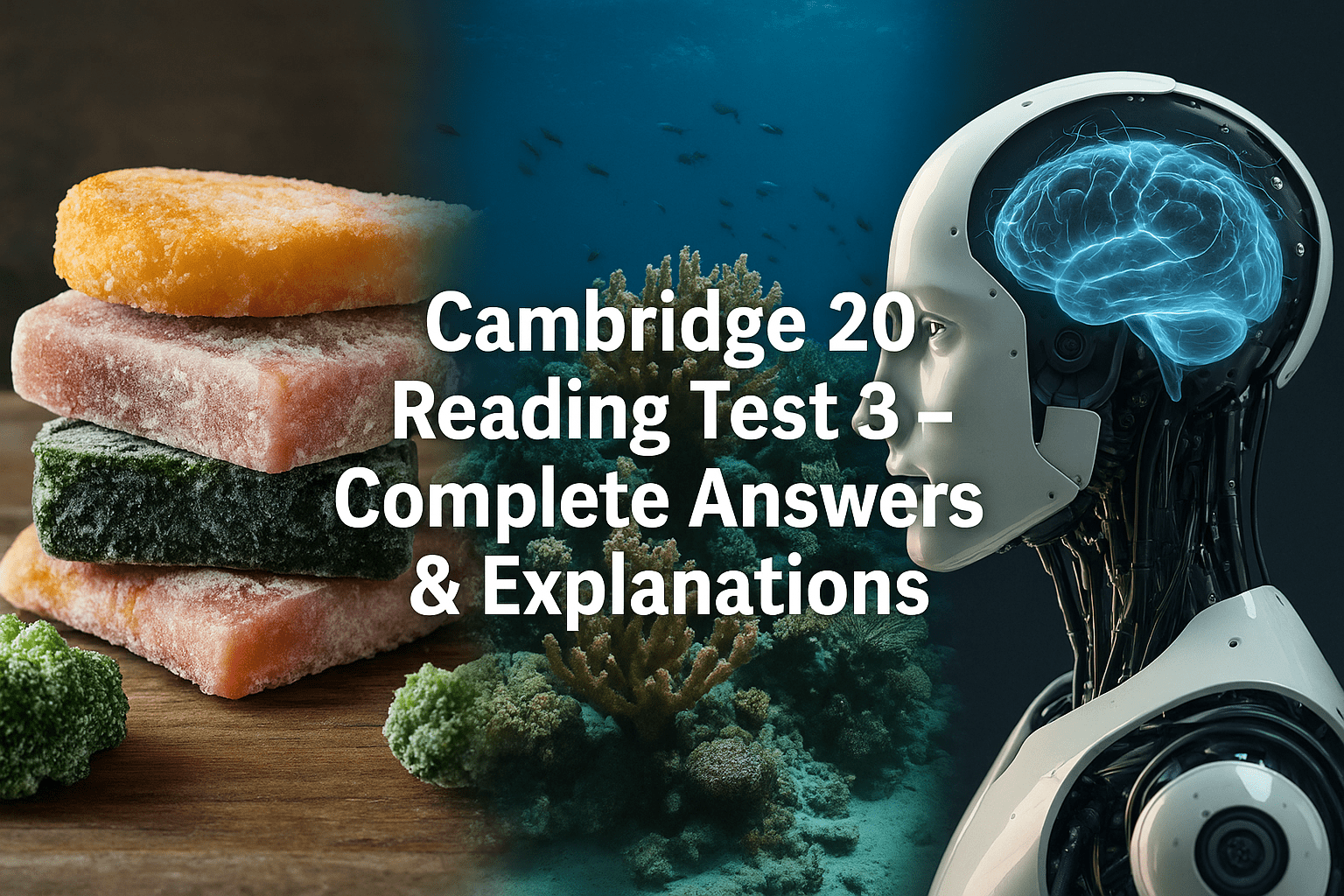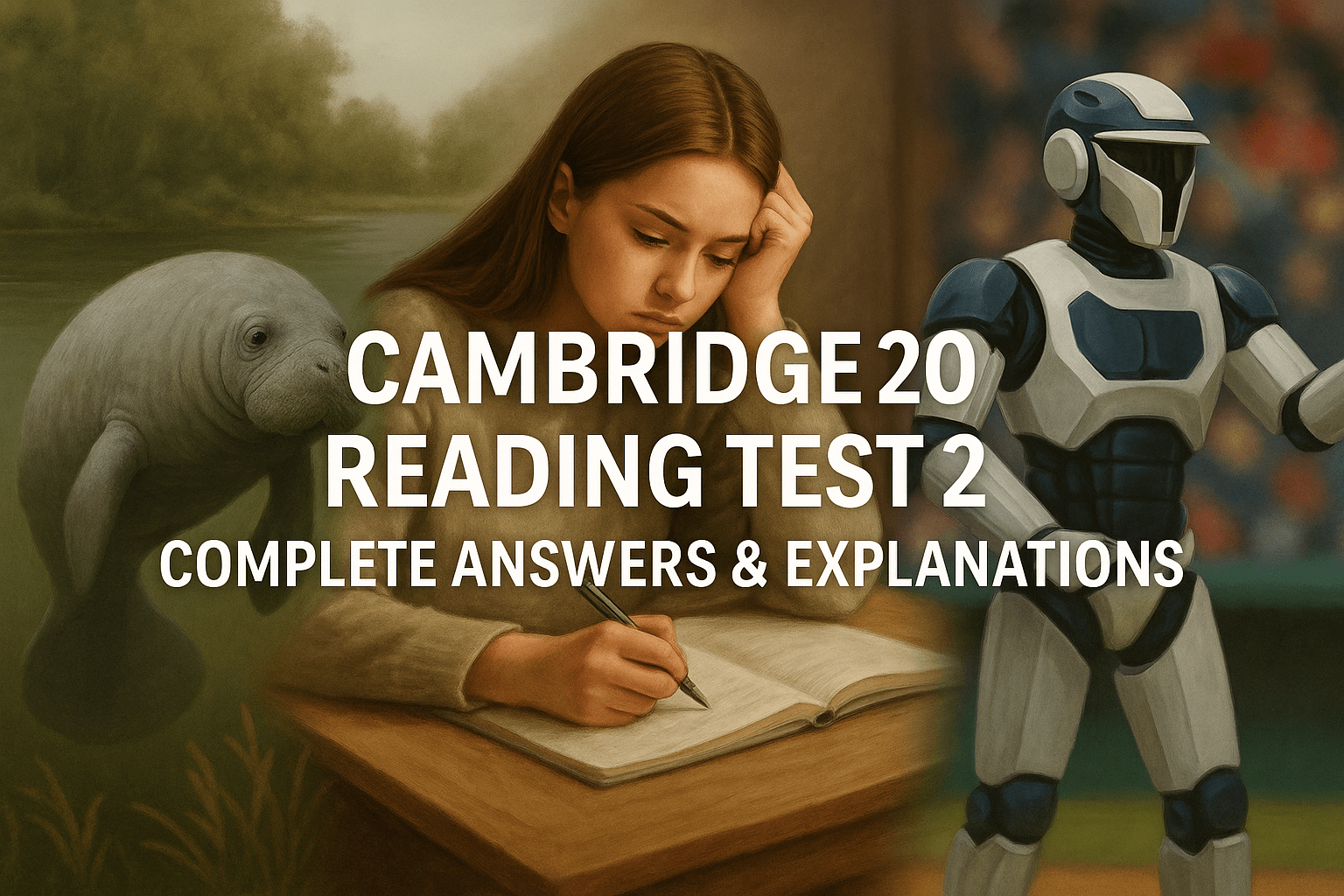When it comes to IELTS reading short answer questions, many of my students find them deceptively simple. They often say, “It’s just writing one or two words—how hard can it be?” But during my years as an international IELTS teacher, I’ve seen candidates lose easy marks because they either miss the word limit, misread the instructions, or fall for trap phrases hidden in the passage.
In this post, I’ll share the exact strategies I teach my students worldwide to score Band 7+ in this tricky question type, along with real examples and solutions to common mistakes.
Understanding Short Answer Questions in IELTS Reading
Short answer questions require you to write no more than the specified number of words, usually one to three. For example, instructions might say:
Write NO MORE THAN TWO WORDS AND/OR A NUMBER.
Failing to follow this simple rule is one of the most common reasons students lose marks. Even a grammatically correct answer is marked wrong if you write more words than instructed.
On IELTS.org and British Council’s Take IELTS, you’ll find that this question type is used to check how well you can scan and locate precise details in a text.
Common Problems My Students Face
- Ignoring the word limit
Many candidates add extra descriptive words, thinking it makes the answer safer, but it actually breaks the rule. - Copying irrelevant text
Students sometimes lift entire phrases from the passage without checking if the extra words break the word limit or are unnecessary. - Falling for trap phrases
IELTS loves to include distractors—words that look correct but slightly change the meaning.
When I coach my students through IELTS reading skills for Band 7–9, I always emphasize precision and careful reading as the key to success.
Step-by-Step Strategy for Short Answer Success
1. Read the Instructions Carefully
Always start by noting the word limit. If it says ONE WORD, don’t add a number or adjective. If it says TWO WORDS AND/OR A NUMBER, plan your answers accordingly.
2. Scan for Keywords, Not Full Sentences
IELTS reading is not about reading the passage line by line. Use scanning to find your keywords quickly:
- Look for names, dates, numbers, or capitalized words.
- Focus on synonyms and paraphrases—for example, “infant” might appear as “baby” in the question.
My students improve this skill significantly by practicing with our IELTS reading vocabulary list for Band 7–9, which highlights common synonyms.
3. Beware of Trap Phrases
IELTS will often include tempting but slightly incorrect details:
- Extra adjectives or explanations that are not part of the required answer
- Paraphrases that look right but miss a key point
I always encourage my students to double-check that their final answer fits the question grammatically and doesn’t include any unnecessary words.
4. Use Practice and Self-Checking
After completing a set of short answer questions:
- Verify that each answer meets the word limit
- Ensure your answers come directly from the passage without adding interpretation
- Check your spelling—IELTS will not forgive typos
For more question-type guides, I recommend visiting our IELTS Reading Question Types Guide for a complete breakdown.
Real Classroom Example
One of my students from Vietnam struggled with short answer questions because he often copied entire noun phrases from the passage.
For example, if the passage said:
“The festival takes place in late November in Edinburgh.”
And the question was:
“When does the festival take place?”
He wrote: late November in Edinburgh.
❌ Wrong (too many words, not needed)
✅ Correct answer: late November
Once he started checking the word limit and grammar fit, his accuracy jumped from 50% to 85% in just two weeks.
Quick Tips to Avoid Mistakes
- Always underline the word limit in the instructions.
- Use keyword scanning, not full reading.
- Don’t overthink—write exactly what is needed, nothing more.
- Watch out for plural vs. singular forms—they must match the passage.
- After answering, read the question with your answer inserted to ensure it makes sense.
Frequently Asked Questions (FAQ)
Q1: Can I use synonyms in short answer questions?
Yes, if the synonym conveys the same meaning and fits grammatically. But copying directly from the passage is often safer.
Q2: Do spelling mistakes count as wrong?
Absolutely. IELTS marking is strict—one misspelling can cost you the mark.
Q3: Should I answer in capital letters or lowercase?
Either is accepted, but many students write ALL CAPITALS to avoid capitalization errors.
Q4: How can I practice effectively for Band 7+?
Combine past papers with focused skill-building, such as scanning exercises, keyword matching, and avoiding trap phrases. Regular practice on IELTS IDP and timed drills helps simulate real exam pressure.
By mastering IELTS reading short answer questions with these strategies, you can confidently avoid common mistakes and secure those crucial Band 7+ marks. Start small, practice consistently, and always review your errors to see improvement with every test.





